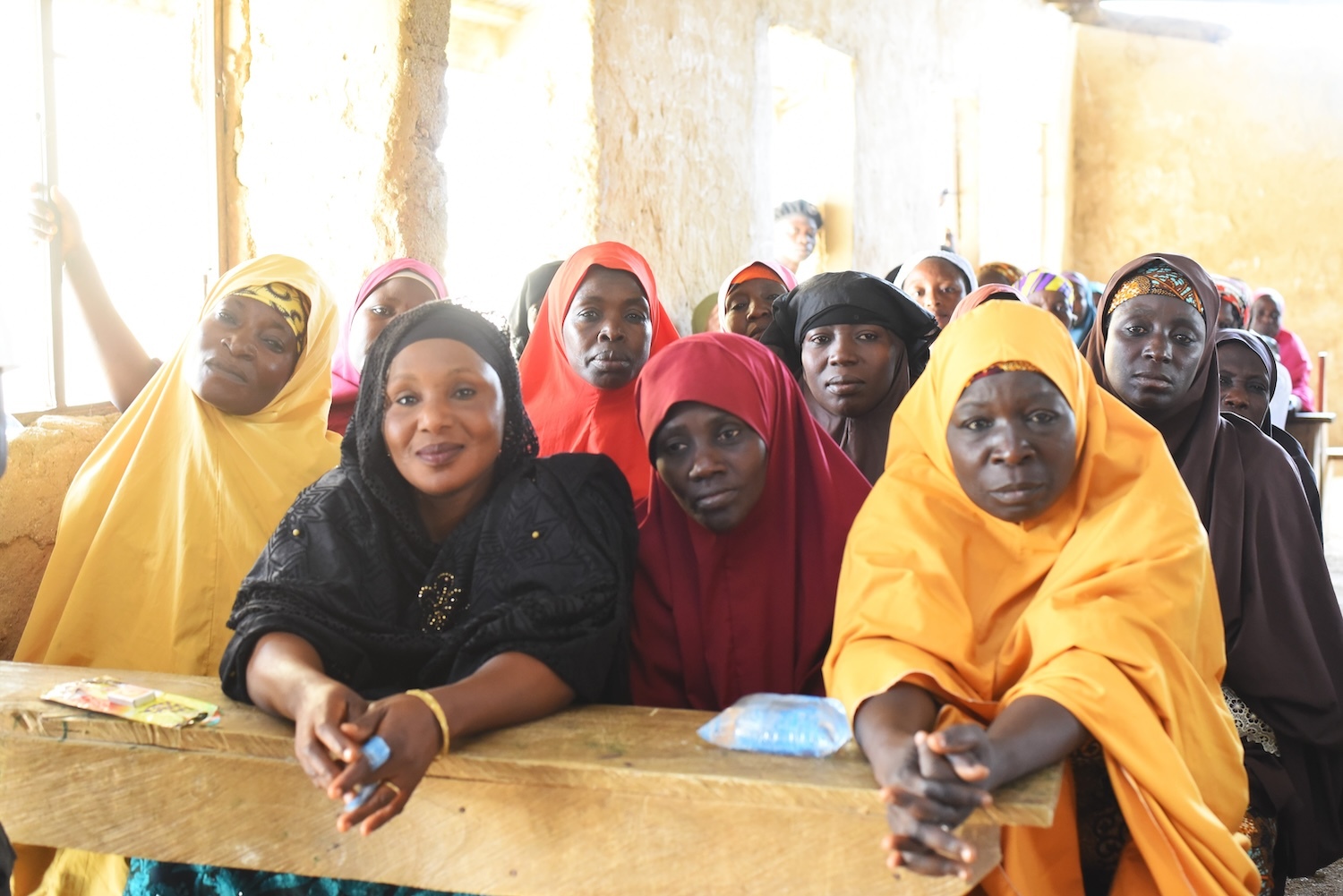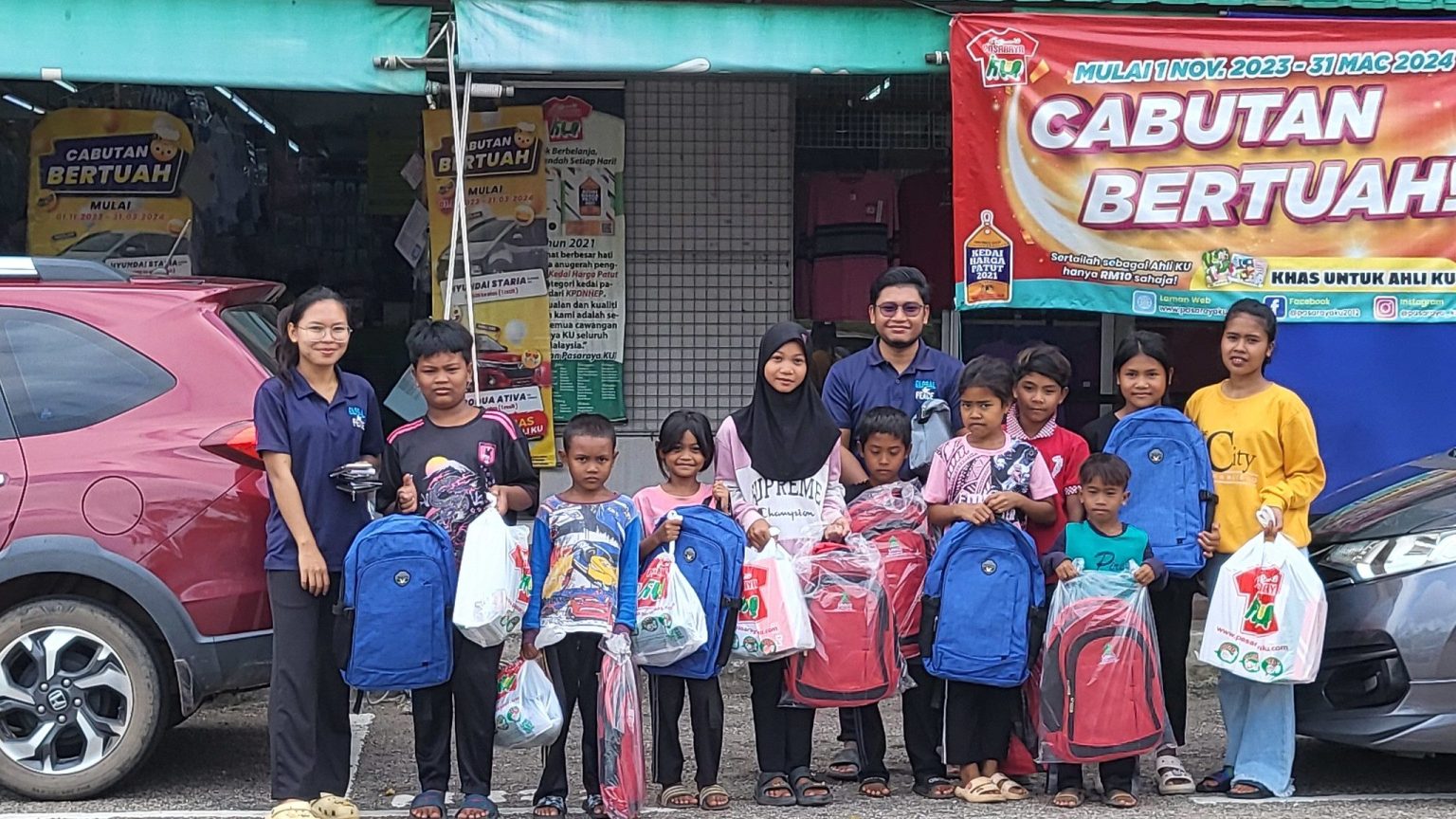This interview was posted on GPF Korea’s blog on Jessica Kang, a GPF volunteer from Korea.
In 2012, Jessica Kang traveled between Korea and the Philippines 16 times as a GPF delegate for the All Lights Village Project. The project has expanded from the Philippines to Malaysia and Mongolia, and expects to reach out to other developing countries this year.
Jessica has also staffed Global Poomashi projects in the Philippines. Global Poomashi is an overseas volunteer and leadership exchange program that promotes international friendships among Koreans and Filipinos.
Total, Jessica has spent over one-third of 2012 in the Philippines.
Q: Can you give a brief introduction of yourself?
A: Hello, my name is Jessica Kang. I am a representative of GPF Korea.
Q: You made sixteen trips to Philippines in 2012 alone to develop GPF activities. Although currently many top Filipino dignitaries endorse GPF, I am sure the beginning was tough.
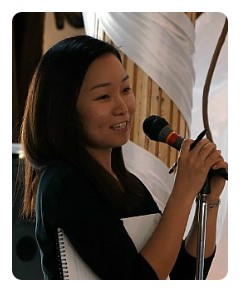
Jessica Kang made sixteen trips to the Philippines in 2012 alone.
A: Yes, that is true. I first went to the Philippines with GPF in October 2011. I remember the culture shock. In the Philippines things are not as fast paced as in Korea. Filipinos are easy going, Koreans, on the other hand, like to expedite the process. In the beginning I was so frustrated by little things like appointment times.
Q: Back then things were difficult, but now you are on good terms. What’s the secret?
A: There is a saying ‘When in Rome, do as the Romans do.’ I was in the Philippines, so I had to follow their ways. In the beginning, I was only concerned about seeing progress in our work. But I shifted my focus to getting to know the people. Now, I am almost a Filipino! I have also been to South Africa to volunteer. That experience, figuring out how to adjust to a new culture helped me a lot.
Q: Including this year, there will have been ten Global Poomashi, Peace Leadership Exchange Programs in the Philippines. Which was the most memorable?
A: The first one for sure was the most memorable. It is Nueva Ecija. Now the All-lights Village Project is well established there. The first one was held in Sultan Kudarat, South Mindanao of the Philippines. Everything was new, and everything that could have gone wrong, went wrong. But it left the most profound and vivid memory. I have to say it was also the most rewarding.
Q: I believe there are still the rebel troops in Mindanao, were you in danger?
A: Yes, it was a big concern. The Islam rebels in Mindanao Island were involved in armed conflict for independence from the Philippines. Once in a while we heard news about foreigners being kidnapped, which totally frightened me. Less visited by foreigners means less developed. But I wanted to supply solar-powered lanterns through the All-lights Village Project, to the villagers so they could live a better life. So, despite the danger, I left for Mindanao Island without thinking twice.
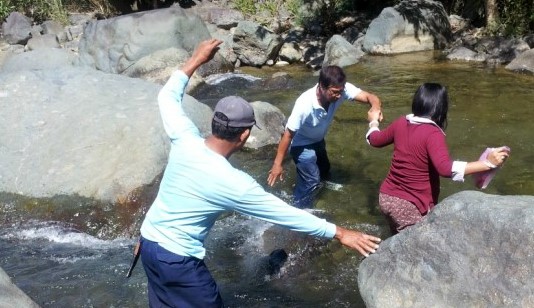
Participants crossing the river to get to the other side.
Q: Please tell us about the first Global Peace Leadership Exchange (GPLE) held in Sultan Kudarat.
A: It takes an hour by plane from Manila and several hours by bus driving along a dirt road that stretches over the mountains to get to Sultan Kudarat. The bus was too old and rocking the whole time. Some Korea GPF volunteers were got really carsick. Anyway, we arrived in Sultan Kudarat Province early in the morning. The officials were waiting for us, they hadn’t slept.
I remember an amazing thing happened the next day. We stopped by a small grocery on our way to the airport, and the owner recognized us, the GPF volunteers and wanted to shake hands with us. The footage of us arriving and passing out the solar-powered lanterns was aired nationwide on Filipino ABS – CBN TV that morning.
The owner said to us, “As a Filipino citizen, I am so grateful for you coming all the way here to help us develop.” Then, I realized although what we do is quite challenging, it is certainly rewarding.
Q: Is there anyone you remember while working for All-Lights Village Project?
A: Federico Baltazar, leader of Sitio Sinipit. At first he was not happy with GPF volunteers coming to his town. He thought, “It would be another one time event.” Prior to our visit, a number of foreign NGOs supplied aid but they did not come back. So Federico had every reason to think that way.
Many GPF volunteers for GPLE visited Sitio Sinipit once a month to provide the solar-powered lanterns and install the large scale solar-powered streetlights. Gradually, they changed their minds.
I remember when we built the Multi-Purpose Room for the community. The college students who came through the GPLE arrived in Sitio Sinipit to build the Multi-Purpose Room, but there was a shortage of materials including lumber. Federico found out about it and voluntarily initiated, for the first time in his life, fundraising for construction of Multi Purpose Room. With his help we constructed a sturdy and durable Multi Purpose Room.
Q: Do you remember anyone special from Alllights Village Project?
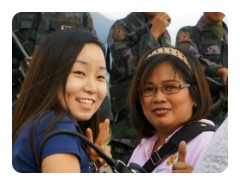
Jessica (left) and Joy (right) worked together to prepare everything for all volunteer activities taken place in the Philippines.
A: Joy from GPF Philippine. She is our bridge between Korea and the Philippines. She is calm and smart. She has supported me in every way. She and I prepare everything for volunteer activities in the Philippines together.
Joy is a mother of four children. Every day, she gets up at 5 in the morning and gets her children ready for school. At 8 am, she meets me to start her GPF work. She herself pays a visit to the areas that are not getting electricity service like Nueva Ecija and talks with a leader or officials. She returns home around 9 or 10 at night. Even at home, she works on her report, so she only sleeps 4~5 hours a day. She is amazing, right?
Joy is like a Filipino sister and a mentor to me. She lives a harder life than I, but she is fully committed to her work. She is building the foundation for the Filipino nation to rise up. Even at this hour, she is working probably working to lay a foundation for another project.
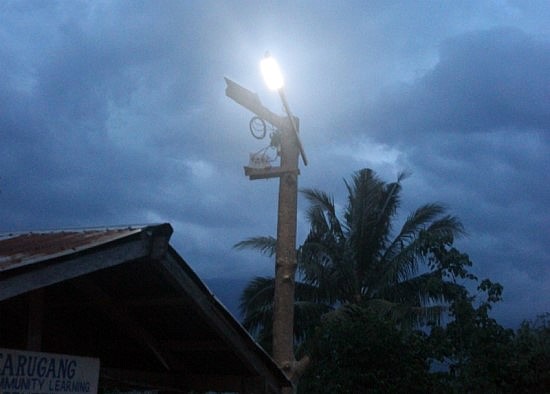
Solar-powered streelights in Karugang Village. Jessica Kang shed tears during the lighting ceremony of the solar-powered streetlights in Karugang Village.
Q: All-Lights Village Project 2012 hailed success in the Philippines. I think they owe it to you.
Like Joy, I am not doing this for myself but for advancement of the Filipinos and friendship of two countries. 2012 was a rewarding year for me although I had some tough time.
But we have a long way to go. There are 34,000 Filipino villages that are spending dark nights without power. We just covered 9 of them, so you know that it is a really long way to go.
And what is more important than building Alllights Village is continuous stewardship and sustainability. If we cannot pull it off, we are no better than other NGOs as the Sitio Sinipit leader Baltazar indicated. During the past ten GPLE programs, we have seen solar-powered lanterns totally wrecked within a year. But I was proud that our solar-powered lanterns were being put to good use. On the other hand, I felt the need to retain a stewardship system of some sort for them.
After having worked for a year, I realized “Truth can make impossible possible.” Filipinos speak a different language, have different skin color and culture, and everything else is different, but we approached them with a truthful heart. That is when they opened their hearts to us. My heart will always remain sincere and I am fully committed to this work.

